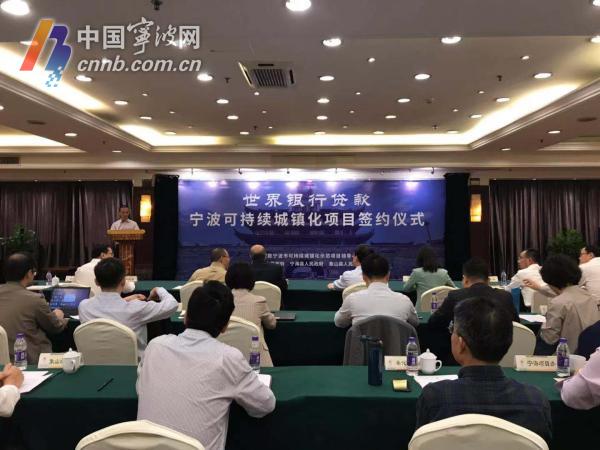World Bank fuels Ningbo's sustainable development

The World Bank will provide a loan worth $150 million to support urban development and increase preparedness for climate change in Ningbo, Zhejiang province. [Photo/cnnb.com.cn]
The World Bank will provide a loan worth $150 million to support urban development and increase preparedness for climate change in Ningbo, Zhejiang province, according to a press conference held on Oct 15.
The urban development project, with a total investment of 2.34 billion yuan (the Chinese government is providing the rest of the funding), is intended to boost sustainable development in Fenghua, Ninghai and Xiangshan counties in Ningbo.
Areas of focus will include urban reconstruction, urban transport, flood risk management and technical assistance, and capacity building, according to the conference.
The project will help improve water management, roadway drainage systems, and the protection of green spaces in order to reduce flood risks in typhoon-prone areas, while also supporting more fuel-efficient buses and promoting non-motorized transportation in urban areas so as to reduce carbon emissions.
China has an ambitious goal to move more than 100 million people to cities by 2020, pushing the urban population to 60 percent, according to the National New Urbanization Plan (2014–20), but many cities face challenges in city planning and infrastructure construction, making it difficult for them to accommodate such large amounts of incoming residents.
The World Bank loan to China is capped at about $1.5 billion annually, with most of the money going toward central and western China.
Only a small portion of the loan is being used to support innovative demonstration projects in the eastern part of the city.
Ningbo has formed a strong long-term cooperative relationship with the bank.
Since 1985, the two have inked 20 cooperative agreements, with total loans valued at around $1.8 billion, covering sectors such as urban construction, agriculture, education, housing, social security, and environmental protection.



 Print
Print Mail
Mail
